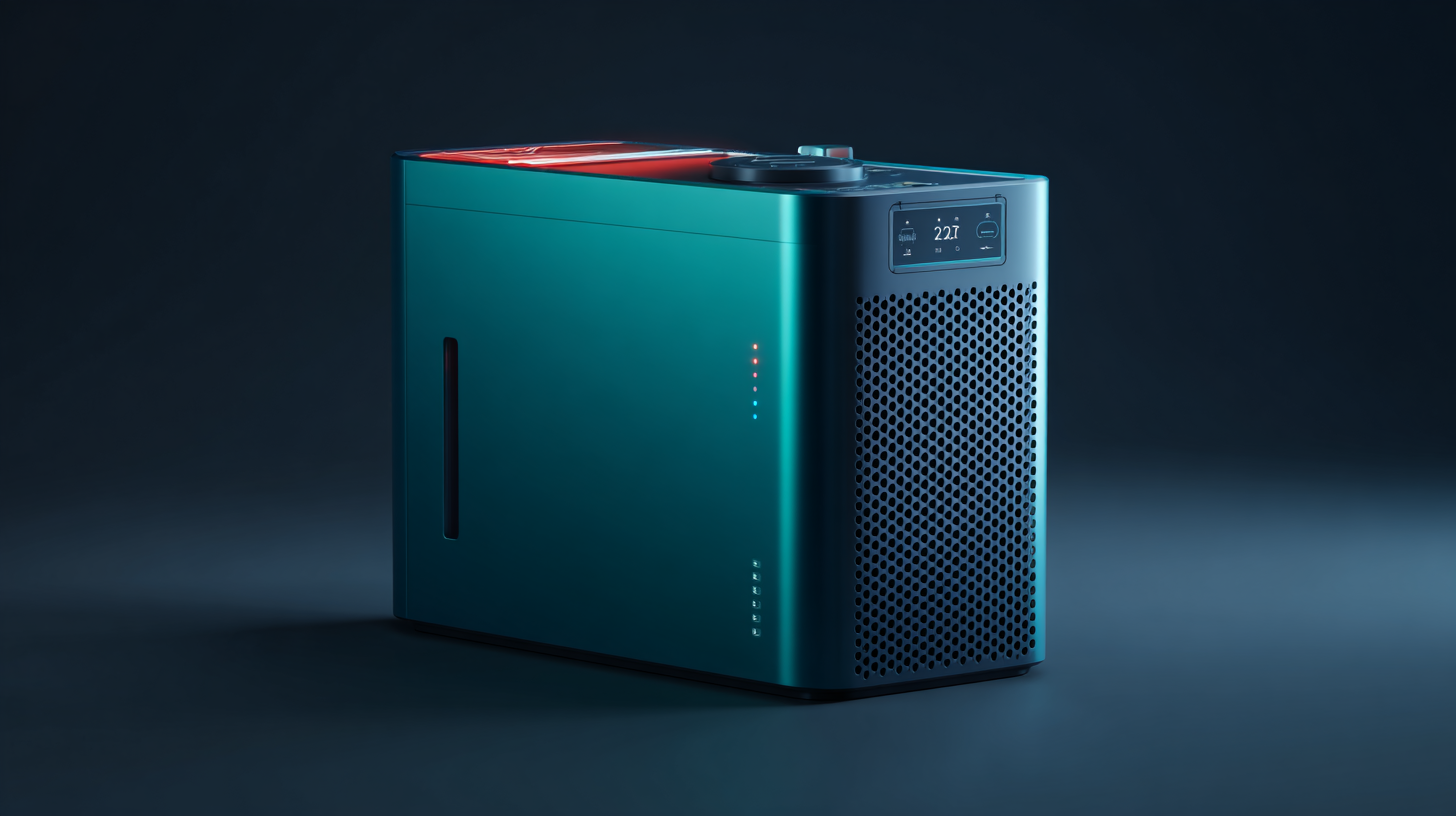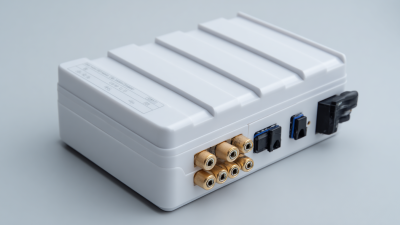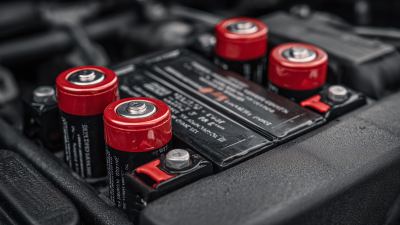Exploring the Future of Energy: Innovative New Battery Technologies Revolutionizing Power Sources
As the global demand for sustainable energy solutions intensifies, the exploration of innovative new battery technologies has emerged as a pivotal theme in the quest for efficient power sources. New battery advancements promise to revolutionize the way we store and utilize energy, addressing critical challenges such as energy density, charging speed, and environmental impact. These technologies not only hold the potential to enhance the performance of electric vehicles and renewable energy systems but also aim to make clean energy more accessible to various sectors of society. By examining the latest developments in new battery technologies, we can better understand their implications for the future of energy, the economy, and our daily lives. This exploration will shed light on the transformative impact that these innovations could have in driving a sustainable energy future.

Innovative Battery Technologies: Transforming Renewable Energy Storage Solutions
Innovative battery technologies are at the forefront of transforming renewable energy storage solutions, bridging the gap between energy production and consumption. As renewable sources like solar and wind power become more prevalent, effective storage solutions are essential to manage the intermittent nature of these energy sources. Advanced battery systems, such as solid-state batteries and flow batteries, offer enhanced energy density, safety, and lifespan compared to traditional lithium-ion batteries. These innovations not only increase the efficiency of energy storage but also pave the way for larger-scale applications.
**Tips for Embracing New Battery Technologies:** Consider investing in solar panels equipped with cutting-edge storage solutions to optimize your energy consumption. Additionally, staying informed about local incentives for renewable energy can help offset the initial costs of these technologies, making them more accessible for homeowners and businesses alike.
As the demand for sustainable energy solutions grows, these innovative battery technologies will play a crucial role in enhancing grid reliability and enabling a cleaner energy future. Developments in energy storage not only promise to revolutionize how we harness renewable resources but also support the transition toward a more sustainable and resilient energy landscape.

Advancements in Lithium-Sulfur Batteries: Potential for High Energy Density and Lower Costs
Recent advancements in lithium-sulfur (Li-S) batteries have positioned them as a promising alternative to traditional lithium-ion batteries. The potential for high energy density is one of the key attributes that sets Li-S batteries apart; they can theoretically store more energy per unit mass. This characteristic could lead to lighter and more efficient energy storage solutions, which are critical for applications ranging from electric vehicles to renewable energy systems. The development of Li-S technology might significantly extend the range and usability of electric cars, addressing one of the major limitations of current battery technologies.
In addition to their impressive energy density, lithium-sulfur batteries also hold the promise of lower manufacturing costs. The raw materials required for Li-S batteries, such as sulfur, are more abundant and less expensive compared to cobalt or nickel used in lithium-ion batteries. This could translate to more accessible energy storage solutions, facilitating the transition towards cleaner energy alternatives. With ongoing research focusing on enhancing the lifespan and charging speed of these batteries, the future of lithium-sulfur technology looks increasingly bright, potentially revolutionizing how we store and utilize energy in a sustainable manner.
Solid-State Batteries: Increasing Safety and Performance for Electric Vehicles
The advancement of solid-state batteries represents a significant leap forward in electric vehicle (EV) technology, boasting enhanced safety and performance. Recent developments have highlighted the potential of these batteries to dramatically increase driving range. For instance, prototypes are showcasing ranges upwards of 808 miles, positioning solid-state technology as a game-changer in the quest for longer-lasting electric vehicles. Industry experts emphasize that solid-state batteries offer multiple advantages, including high energy density and rapid charging speeds, which are vital for the widespread adoption of EVs.
However, despite their promising features, the path to mass production is fraught with challenges. Analysts predict that achieving large-scale manufacturing by 2026 may be hampered by four significant barriers, which include material sourcing, scaling production methods, and ensuring consistent performance. Yet, the ongoing road tests, such as the introduction of vehicles powered by lithium-metal solid-state batteries, indicate a strong momentum in the industry. As automakers continue to innovate and address these hurdles, the future of solid-state batteries could redefine electric mobility, offering both consumers and manufacturers a compelling reason to embrace this next-generation power source.
The Role of Flow Batteries in Grid Energy Management and Renewable Integration
Flow batteries are emerging as a transformative solution in the realm of energy management, particularly in integrating renewable sources into the power grid. Unlike traditional batteries, flow batteries store energy in liquid electrolyte solutions, allowing for scalable power output and extended cycle life. This unique design makes them particularly suitable for applications requiring long-duration energy storage, where they can discharge energy over several hours or even days. Their ability to decouple power and energy capacity means that utility operators can optimize their systems based on demand, thereby improving grid stability.
As renewable energy sources like solar and wind become more prevalent, the need for effective energy storage solutions is paramount. Flow batteries can store surplus energy generated during peak production times, releasing it during low generation periods or high demand. This capability not only enhances the reliability of renewable energy systems but also supports grid resiliency by reducing dependence on fossil fuels. The role of flow batteries in grid energy management is thus crucial, as they enable a smoother integration of renewables, facilitating a transition toward a more sustainable and reliable energy future.
Exploring the Future of Energy: Flow Battery Capacity Over Years
Emerging Nanotechnology in Batteries: Enhancing Efficiency and Longevity for Consumer Electronics
Emerging nanotechnology is set to transform the realm of battery efficiencies, particularly in consumer electronics. With the integration of graphene into battery electrodes, manufacturers are enhancing conductivity, charge retention, and thermal stability. These improvements are critical as they contribute to longer-lasting and more efficient battery performance, addressing a growing demand for power sources in various electronic devices.
Additionally, solid-state batteries represent a highly promising advancement in battery technology. Their notable features, such as superior safety and high energy density, position them as a viable alternative to traditional lithium-ion batteries. As the technology evolves, substantial investments are being directed towards the mass production of silicon-carbon anodes, which could further enhance battery longevity and efficiency. Overall, the continuous innovation in nanotechnology and solid-state solutions heralds a new era of energy storage that caters to consumer needs while pushing the boundaries of performance.

Related Posts
-

Battery Power Innovations at the 138th Canton Fair 2025 Enhancing Industry Data Insights
-

Ultimate Guide to Choosing the Best Battery: Key Factors When You Buy a Battery for Optimal Performance
-

Unlocking the Future: How Battery Packs are Revolutionizing Portable Power Solutions
-

7 Essential Facts About the Best UPS Backup System for Your Business Needs
-

The Untold Secrets of Lead Acid Batteries: Maximizing Efficiency and Longevity
-

How to Extend the Lifespan of Your Car Batteries: Essential Tips and Tricks
